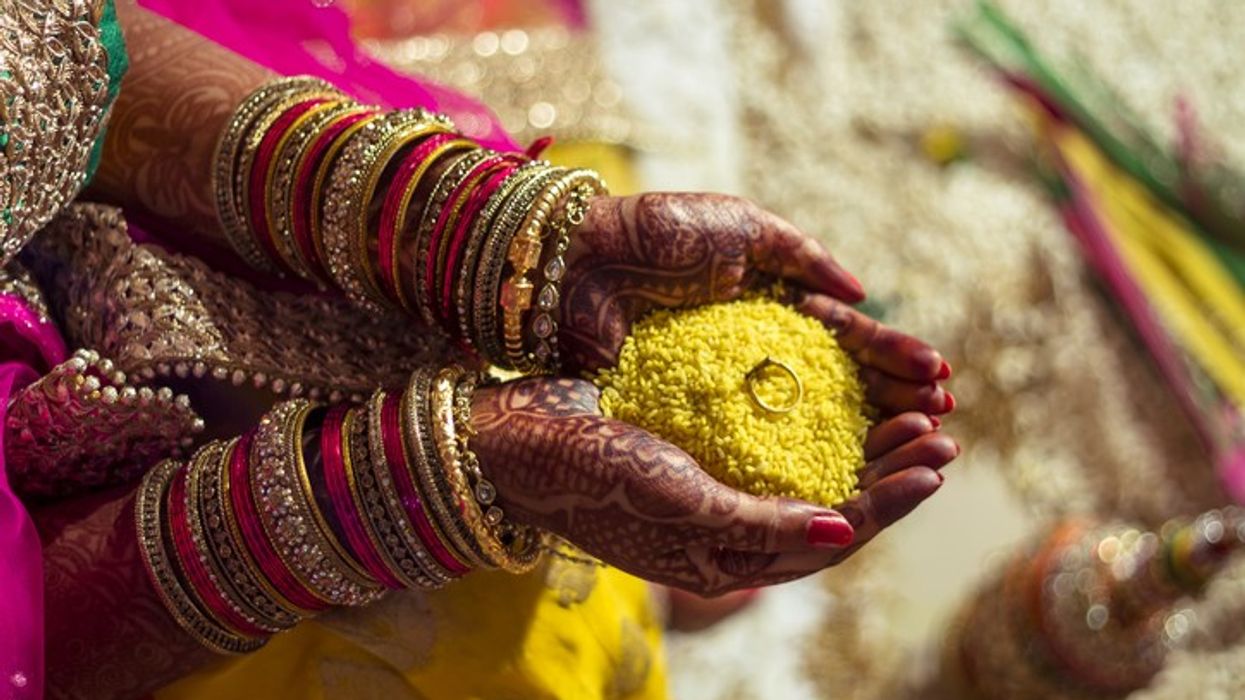MOST Indians consider themselves and the country to be religiously tolerant but are against interfaith marriage, a survey conducted by Pew Research Center revealed.
The survey report is based on a face-to-face survey of 29,999 Indian adults fielded between late 2019 and early 2020. It covered nearly all Indian states and union territories.
About 84 per cent of the surveyed people said that to be “truly Indian,” it is very important to respect all religions.
However, people across different faiths in the country said stopping interfaith marriage was a "high priority" for them.
India’s massive population is diverse as well as devout.
Not only do most of the world’s Hindus, Jains and Sikhs live in India, but it also is home to one of the world’s largest Muslim populations and to millions of Christians and Buddhists.
According to the report, 80 per cent of the surveyed Muslims felt it was important to stop people from their community from marrying into another religion.
Around 65 per cent of Hindus felt the same.
The study also found that religious conversion is rare in India.
Conversion of people belonging to lower castes from Hinduism to other religions, especially Christianity, has been contentious in India, and some states have laws against proselytism, the study said.
The survey also explored the relationship between faith and nationality in India. It found that for many Hindus, national identity, religion and language are closely connected.
Nearly two-thirds of Hindus said it was very important to be Hindu to be "truly Indian".
Besides, a vast majority of Hindu population in northern and central regions strongly link Indian identity with the Hindi language. The two regions comprise the country’s “Hindi belt,” where Hindi, one of dozens of languages spoken in India, is most prevalent.
The study revealed that among Hindus, views of national identity go hand-in-hand with politics.
“Support for the ruling Bharatiya Janata Party (BJP) is greater among Hindus who closely associate their religious identity and the Hindi language with being truly Indian,” the survey report said.
Besides, dietary laws are central to Indians’ religious identity as laws on cow slaughter in the country became a flashpoint.
Nearly 72 per cent of Hindus said a person cannot be Hindu if they eat beef.
Similarly, 77 per cent of Indian Muslims feel a person cannot be Muslim if they eat pork.
The survey further revealed that 74 per cent of Muslims favour having access to their own religious courts.
Since 1937, India’s Muslims have had the option of resolving family and inheritance-related cases in officially recognised Islamic courts, known as dar-ul-qaza.
However, whether or not Muslims should be allowed to go to their own religious courts remains a hotly debated topic in India.
About the Indian society, the research said caste system, an ancient social hierarchy, continues to fracture the social structure. Regardless of their religion, all Indians nearly universally identify with a caste.
A large share of Indians object to inter-caste marriages, the study showed.
Meanwhile, the Indian Constitution prohibits caste-based discrimination, including untouchability.
In recent decades the government has enacted economic advancement policies like reserved seats in universities and government jobs for members of some lower-caste communities.
Another key finding of the survey is that nearly all Indians believe in God. However, one-third of Buddhist people do not believe in the existence of God.
Despite the diversity in religion and faith, India’s religious groups share several religious practices and beliefs.
“India’s minority groups often engage in practices or hold beliefs that are more closely associated with Hindu traditions than with their own,” the report said.
Some members of the majority Hindu community also celebrate Muslim and Christian festivals, it added.




